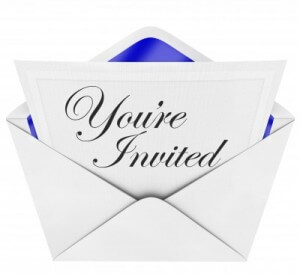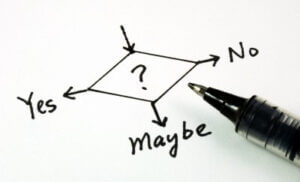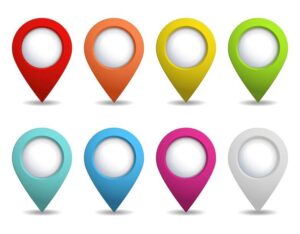- Advertising (1)
- Branding (7)
- Business awards (2)
- Business Development (32)
- Business Growth (11)
- Business listening (1)
- Buyer behaviour (8)
- Client loyalty (11)
- Client Relationship Management (5)
- Conferences (0)
- Conferences and Events (5)
- Content marketing (6)
- Customer experience (18)
- Customer feedback (5)
- Digital marketing (8)
- Direct mail (2)
- Endorsements and recommendations (7)
- Exhibitions (5)
- Exhibitions, Conferences and Events (0)
- GDPR (1)
- Internal marketing (1)
- Key client management (9)
- LinkedIn (12)
- Marketing budgets (3)
- Marketing campaigns (13)
- Marketing Communication (7)
- Marketing measurement (1)
- Marketing on a tight budget (4)
- Marketing planning (33)
- Marketing strategy (28)
- Networking (16)
- News (6)
- Online advertising (1)
- Personal branding (7)
- Personal Development (0)
- Pitching for work (7)
- Presentations (1)
- Pricing and discounting (2)
- Promotional events (2)
- Reputation management (6)
- Sales process (4)
- Search engine optimisation (1)
- Small business marketing (1)
- Social media (14)
- Supplier Management (1)
- Thought leadership (2)
- Website development (3)
How to generate leads and sales from your promotional events
 Done well events can create a great environment to generate positive face-to-face contact with potential and existing customers. This can bring some much needed human contact in the wealth of digital communications businesses now employ in their marketing. And they can help you distinguish your business from others and, in the age where recommendations rule, impressed customers can work on your behalf to influence others to buy from you.
Done well events can create a great environment to generate positive face-to-face contact with potential and existing customers. This can bring some much needed human contact in the wealth of digital communications businesses now employ in their marketing. And they can help you distinguish your business from others and, in the age where recommendations rule, impressed customers can work on your behalf to influence others to buy from you.
For the purpose of this article we’re going to focus on the face-to-face kind, not the digital. These cover any gathering undertaken by your business with its clients, contacts, potential clients or influencers. They come in all shapes and sizes, for example:
- Workshops or seminars
- Training sessions
- Taster sessions or demonstrations
- Exclusive previews/buying sessions
- Conferences
- Roundtable discussion
- Facilitated networking or other business gatherings
- Charity fundraisers
- Parties, celebrations or other forms of hospitality
Do events really generate a good return on investment?
 In talking with MDs of small companies, opinion is often divided about the value events bring to their marketing mix. The more disillusioned say their target audience has less time now and too many commitments.
In talking with MDs of small companies, opinion is often divided about the value events bring to their marketing mix. The more disillusioned say their target audience has less time now and too many commitments.
To them, this means events incur a lot of effort for little return – perhaps a luxury when times were good, but their business can’t be that flush now. Some also feel the return on investment from events is difficult to measure. Poorly planned, managed and followed up events do indeed warrant these criticisms.
But done well an event can create that much needed sales boost. It can strengthen customer loyalty and motivate new customers to try you out. When people are nervous about where they spend their money, a well-run event can establish credibility and reassurance by addressing customer concerns or answering their questions. The key is to plan and project-manage an event as you would any strategic business initiative.
Define what you want to gain
 To ensure your event has a real chance of success define objectives you want it to achieve or bring to the business. Also, to help you easily measure its return on investment, your goals need to specific and realistic.
To ensure your event has a real chance of success define objectives you want it to achieve or bring to the business. Also, to help you easily measure its return on investment, your goals need to specific and realistic.
So define the quantifiable results you’re aiming for. This can then guide your event’s preparation to be more focused, more resourceful and more likely to successfully complete those KPIs or measures you’ve set. Here are some good event objective examples:
- £x of sales of the ABD product amongst the event’s guests in the six months following the event
- 10 follow up meetings with new clients to discuss the XYZ service within the next 6 weeks
- 50% take up of the discount voucher handed out at the event
- 16 bookings for a DGH model demonstration when it is comes out in 2 months’ time
Focus in on your audience
 It pays to think carefully about which audience is best suited to achieve your event’s objectives. Rather than blanket-mailing your customer list, consider who is most likely to be able to commit in the way you want.
It pays to think carefully about which audience is best suited to achieve your event’s objectives. Rather than blanket-mailing your customer list, consider who is most likely to be able to commit in the way you want.
You’ll have an idea about what the event’s content or format will be but go further and invest time thinking about the nuances of your target audience and which elements of the event need to resonate with them. Start to prepare an event focused on engaging your target guest’s interest and making them keen to attend:
- Choose a time and duration for the event which best fits around their other commitments
- Consider what else will they need to co-ordinate or re-arrange to be able to come (can you help make this easier in any way – eg picking a venue with a crèche, avoiding a clash with another event etc)
- Select your event’s location as one which is ideal for them at that time of the day and which has easy travel and parking arrangements
- Opt for a venue which would impress them and add positively to the experience
- Consider who else could be involved in the event to create a ‘draw’ – can you double up with another business or include a topical or popular speaker?
Let your audience’s preferences and tastes guide you in establishing your event’s content, style and format to ensure it is an experience they really enjoy and value. If your audience is too diverse, consider running several smaller events rather than one larger one. The more personalised the event feels to your guests, the more positive the experience will be for them.
Attention-grabbing invites
 Whilst people have numerous pressures on their time, they will make way for events and activities which they perceive to be worthwhile. The key then is to really demonstrate the value your event will bring. To get your audience to accept your event invitation, you need to craft a message that appeals to them 100%.
Whilst people have numerous pressures on their time, they will make way for events and activities which they perceive to be worthwhile. The key then is to really demonstrate the value your event will bring. To get your audience to accept your event invitation, you need to craft a message that appeals to them 100%.
Make receiving the invitation an experience in its own right and ensure the invite clearly conveys the benefits of attending in a way that will really impress the recipient. Consider who the invite needs to come from in your business in order to add kudos.
During the invitation process cater for all styles of personal organisation in your target guests – from those that sort out their ‘lives’ weeks in advance through to the more impulsive last minute bookers. Give the former group plenty of notice and send a number of timely reminders to the latter. Don’t forget to signpost the timings (beginning and end) of the event so people can better manage it into their busy schedules.
Eliminate the last minute declines and no-shows
When people accept your invitation, be honoured. They’ve chosen to invest an hour or so of their precious time with you. To prevent them changing their mind at the last minute you need to establish further credibility and excitement in the run up to your event. Build interest by creating a theme and/or create ‘noise’ about it. This doesn’t mean bombarding people with daily updates, instead opt for a handful of carefully prepared previews focused on building anticipation.
In doing so, ensure all communications are consistent in message and design – especially if you’re promoting across different media. And don’t forget to encourage staff to build the event into any advance conversations with guests. Use this opportunity to convey excitement and demonstrate the event is a worthwhile investment of that guest’s time.
Practise for perfection
 The greatest events are carefully stage-managed. Nothing is left to improvisation and every element is taken into account in their preparation. This means physically and mentally walking through the event experience in advance as if you were one of your guests.
The greatest events are carefully stage-managed. Nothing is left to improvisation and every element is taken into account in their preparation. This means physically and mentally walking through the event experience in advance as if you were one of your guests.
Look at the event through their eyes and consider what needs fine-tuning? For example, will they be engaged or bored by the presentation? What do you want them to feel/take away from the session?
Make sure you have enough staff on hand for face-to-face discussions and interactions with customers and contacts. Ideally create hosts that look after small groups of guests and be confident to manage who guests mingle with. If they don’t know anyone, they’ll be grateful for your lead and you can use this to your advantage by buddying up stalwart client ambassadors with your yet to be converted prospects.
Ensure everyone involved ‘on the day’ from your business attends a rehearsal, practice or walk-through so the final event is as slick as it can be.
Take-aways and follow ups
 This is an area where many businesses fail to capitalise on all their hard work. They see the finish line as the time when the guests leave but there is still plenty of work to do to achieve an event’s objectives or KPIs.
This is an area where many businesses fail to capitalise on all their hard work. They see the finish line as the time when the guests leave but there is still plenty of work to do to achieve an event’s objectives or KPIs.
No one wants to invest loads of money and energy in an event which guests leave and promptly forget. You therefore need to engineer ways to keep the event’s message fresh in their minds. That can be helped by giving guests an aide memoire of the occasion to take away – one that helps progress them on their purchasing journey, or whatever it is your event is looking to achieve.
Always hold a team debrief immediately after the event to glean what conversations staff have had with customers and identify the follow up opportunities to be actioned. Delegate or divide up who is going to undertake these and ensure it is done quickly. Don’t leave the content of your take-aways and follow ups to be decided at this stage. Plan them in advance so you can be timely in your response with relevant, beneficial tactics that will further impress guests.
In terms of follow up tactics – think of using phone calls to further touch on points discussed at the event, sending additional information, case studies or examples, samples or arranging demos. Think also about what other added value can you deliver (say introducing people to each other to help guests expand their network or helping them secure a new piece of business) which will cement their goodwill and in time lead to a reciprocal positive outcome for you.
Measurement
 Specific and focused event objectives really come into their own here. They make the evaluation of an event so much easier. The objectives also need to be realistic and, if your event is focused on generating additional sales, factoring in the typical purchasing process or period for that product/service line and where customers were on that spectrum prior to that event.
Specific and focused event objectives really come into their own here. They make the evaluation of an event so much easier. The objectives also need to be realistic and, if your event is focused on generating additional sales, factoring in the typical purchasing process or period for that product/service line and where customers were on that spectrum prior to that event.
In evaluating your event’s worth be prepared to track the other sales interactions which follow and measure the purchasing history of the guests who attended over time. If your event has, however, been built around a specific event-only promotion or offer it will be easier to pinpoint its direct contribution to your sales figures. Also review the on-going benefits your event brings, say in the form of recommendations from guests who attended, reductions in client attrition and increased loyalty.
Summary
People will get out and go to events that they perceive to be interesting and worthwhile. If you really understand your audience you can create an event which they will find hard to resist. And with email inboxes so full and phones diverting to voice-mail more often than not, events can deliver some great quality face-to-face interaction that will strengthen your relationship with customers and contacts alike. Done well events can indeed bring you distinct marketing and sales advantages.
And if you need any help planning your 2019 events to be a success, please do get in touch.
